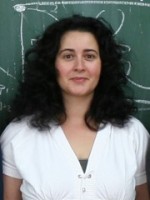Formal Modelling and Analysis of Embedded Systems
Focus:
Focuses on techniques and tools for formal modelling, analysis, and verification of real-time, adaptive, autonomous, cloud-based, and 5G-based systems. In particular, we focus on the formal syntax and semantics of component-based, service-oriented, and cloud-based models with extra-functional requirements with respect to timing and resource usage.
Currently, most embedded systems must function in a distributed setting, communicating with other systems, often unknown at the time of their creation, over networks or other communication channels. In this context, systematic techniques for managing complexity and for ensuring critical system properties during design become a necessity. Formal modeling and analysis techniques, by their very nature, can play a significant role in this regard.
One of the main targets of the Formal Modeling and Analysis of Embedded Systems research group is to develop rigorous/formal frameworks (theory and tools) for designing and verifying embedded systems, be they resource-constrained real-time systems, ambient assisted living or autonomous cyber-physical systems (e.g., autonomous heavy vehicles, drones etc.), as well as to provide mathematical means of predicting and assuring their behaviors at early stages of system development. In addition, we enhance the formal analysis frameworks with testing capabilities against functional, timing, and energy-usage requirements, which rely on similar techniques as verification (e.g. model checking), yet set the premises for testing code.
Latest research includes:
- Modeling and Verifying Functional, Timing, and Resource-usage Behavior of Embedded Systems (supported by REMES IDE)
- Automatic test generation for Industrial Safety-critical Control Systems (supported by CompleteTest tool)
- Pattern-based Requirements Specification and Consistency Analysis: supported by the tools ProPas and ReSA (Tutorial)
- Statistical Model Checking (supported by the SIMPPAAL tool) and Bounded Model Checking (supported by the SyMC tool) of Industrial Simulink Models
- Automated Verification of Atomic Concurrent Real-Time Transactions (supported by the UPPCART framework)
- Assurance of Intelligent Ambient Assisted Living Solutions (using the tools UPPAAL, UPPAAL SMC, and PRISM)
- Formal Verification of Complex Robotic Systems
- Strategy Synthesis and Collision-Avoidance Verification for Autonomous Agents
- Model checking 5G Service Orchestration
Folklore in Software Engineering: A Definition and Conceptual Foundations (Feb 2026) Eduard Paul Enoiu, Jean Malm, Gregory Gay The 19th International Conference on Cooperative and Human Aspects of Software Engineering (CHASE 2026)
A Verification-Aware Pipeline for Programmable Logic Controllers: From Function Block Diagrams to Verified Python Code (Dec 2025) Mikael Ebrahimi Salari, Eduard Paul Enoiu, Cristina Seceleanu, Marco Eilers , Alessio Bucaioni, Wasif Afzal Mälardalen Real-Time Research Centre 2025 (MRTC 2025)
Passive Testing of Vehicular Embedded Systems: An Industrial Case Study with T-EARS and Napkin Studio (Sep 2025) Aleksandra Nicaj , Daniel Flemström, Eduard Paul Enoiu, Wasif Afzal 37th International Conference on Testing Software and Systems (ICTSS 2025)
Ethical Challenges and Software Test Automation (Aug 2025) Per Erik Strandberg, Eduard Paul Enoiu, Mirgita Frasheri AI and Ethics ( AI and Ethics)
Contract-based Verification of Digital Twins (Jul 2025) Muhammad Naeem, Cristina Seceleanu International Conference on Engineering of Complex Computer Systems (ICECCS 2025)
An Essay on the Role of Folklore in Software Engineering (Jun 2025) Eduard Paul Enoiu Software Center Reporting Workshop 2025 (SCRW25)




